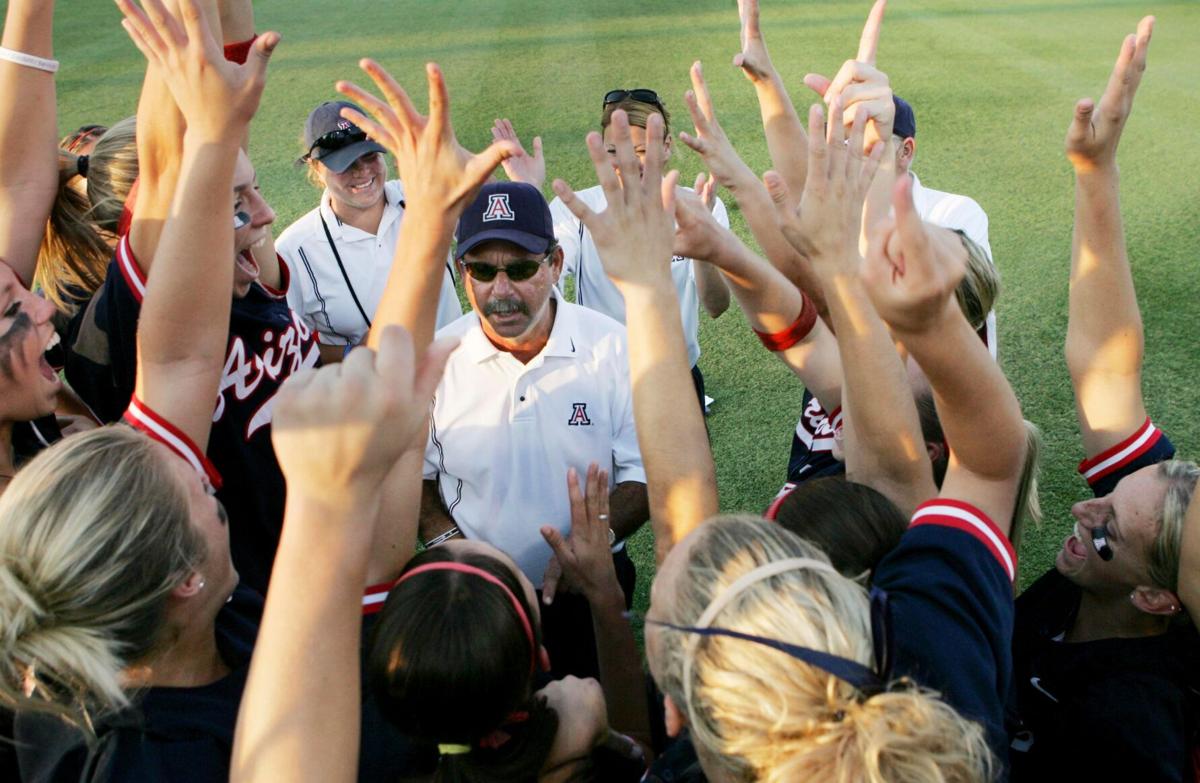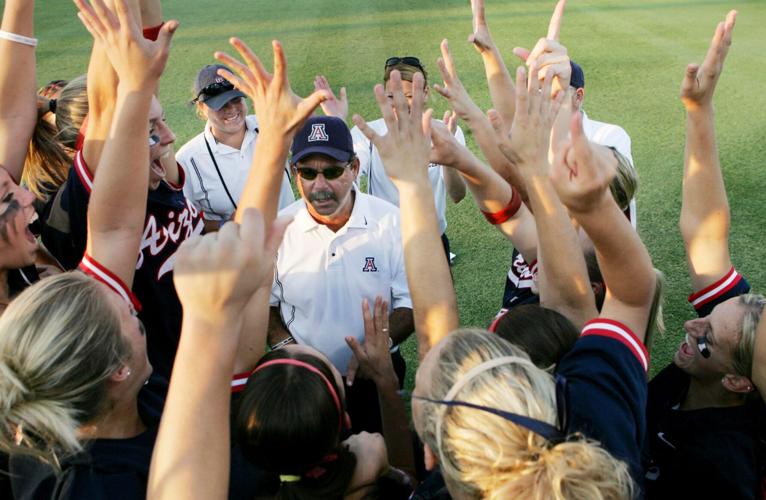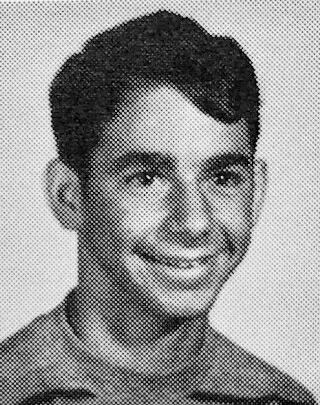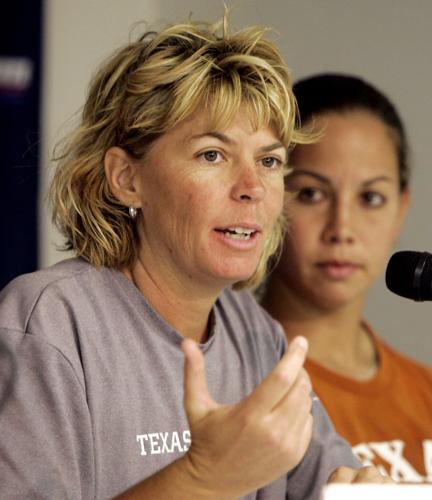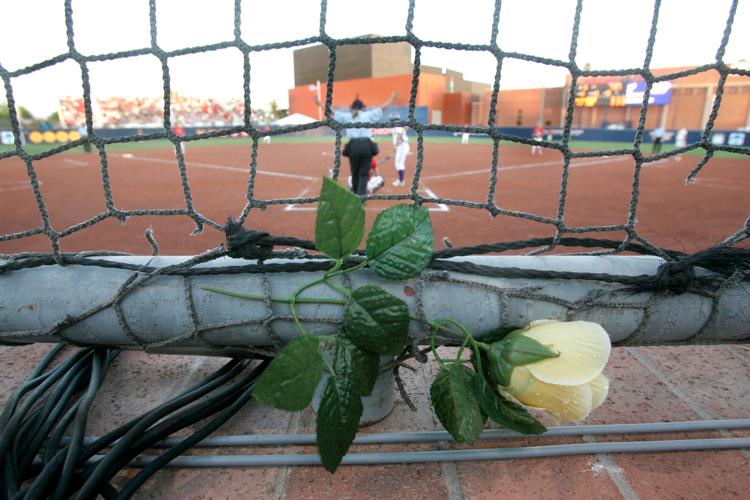Editor’s note: This column appears in Sunday’s special section honoring retiring UA softball coach Mike Candrea.
After coaching Team USA to the softball gold medal at the 2004 Athens Olympics, Mike Candrea’s schedule overflowed with requests to speak at camps, clinics, church groups, Rotary Clubs and as a motivational speaker.
On top of that, he had to hire a staff to run his enormously successful December softball camps, which had gone from regional to national, as scores of young players from as far away as Canada, Kansas, Michigan, Virginia and Illinois signed up, eager to develop their game under the man who coached what Sports Illustrated referred to as “The Real Dream Team.”
“We didn’t even have to advertise,” Candrea said.
And that was in addition to putting together the UA’s recruiting Class of 2005 and, of course, returning to coach the ‘05 Wildcats, who would tie for the Pac-10 championship and finish fifth in the Women’s College World Series.
People are also reading…
The UA assigned a member of the athletic administration to be Candera’s gatekeeper, carefully scheduling his appointments so that he would not be overwhelmed.
In early December, I requested an interview with Candrea, whom I had selected No. 1 in the Star’s annual “Top 100 Sports Figures” issue of 2004. A few days later, I was told Candrea would be available at his Casa Grande home for 90 minutes on the morning of Dec. 22, a Wednesday.
How do you get there, I asked?
“Take Interstate 10 to McCartney Road. Take a right. You’ll see a sign for Martin Road. Big house. Can’t miss it.”
As I turned onto Martin Road, I noticed two nice homes in the middle of nowhere. I pulled in front of the first house and knocked on the door — 50/50 chance, right?
The man who answered the door was not Mike Candrea, but I immediately recognized him as George Young, the greatest distance runner in UA history, a four-time Olympian who hired Candrea to be Central Arizona College’s softball coach in 1983.
“You live next door to Mike?” I asked, shaking my head. “Do you mean that on this lonely road in the middle of the desert, two Olympic medalists live next to one another?”

Mike Candrea graduated in 1973 from Sunnyslope High School in Phoenix.
Young became the athletic director at CAC in 1972 after winning a bronze medal in the steeplechase at the Munich Olympics. He quickly hired a young coach, Kenny Richardson, to start CAC’s baseball program. Richardson in turned recruited a standout second baseman from Phoenix Sunnyslope High School, Mike Candrea, to help get the Vaqueros started. It didn’t take long: CAC won the NJCAA championship in 1976.
A few years later, Young asked Candrea, then Richardson’s assistant coach, if he would change sports and become CAC’s first softball coach.
“I’ll give it a shot,” said Candrea.
The Vaqueros softball team — led by pitcher Connie Clark, whom Candrea first saw pitching in a rec league game in Sun City — then won the 1984 and 1985 NJCAA national championships, back to back.

Texas softball coach Connie Clark, left, answers a question at a news conference in 2006. Clark played for Mike Candrea at Central Arizona College.
Clark ultimately became the head coach at Texas, coaching the Longhorns to an 873-407 record and five Women’s College World Series.
That’s striking a vein, isn’t it? From that lonely spot on the map, the McCartney Road exit, the greatest legacy in college softball took root. It’s an irresistible story of success.
In the 90 minutes I spent at Candrea’s home, he spoke emotionally about the tragic death of his wife, Sue, six months earlier. Sue Candrea died of a brain aneurysm two weeks before Mike left for the Olympics. He talked about his days at CAC and his conversion from baseball to softball.
I could have sat there for another 90 minutes, absorbing the remarkable journey of the son of a New Orleans jazz musician.
Before I left, I asked him what memory from the 2004 Olympics made the biggest impact. This is what he said:

A silk rose is placed behind home plate at Hillenbrand Stadium in 2006 in honor of head coach Mike Candrea’s wife, Sue, who died of a brain aneurysm two weeks before Mike left for the Olympics.
“At the gold medal ceremony, Taeko Utsugi, the head coach of Japan, which won the bronze medal, approached me. I hadn’t been able to get to know her because she doesn’t speak English. She was very disciplined. Very hard to read. Tough.
“She put her arms around me, stepped back and handed me a bunch of money, American money. I went, ‘What?’
“Taeko motioned to an interpreter who said, ‘This money is to buy flowers for your wife, Sue.’”
I looked away so that Candrea couldn’t see the tears forming in my eyes. He did, too.



